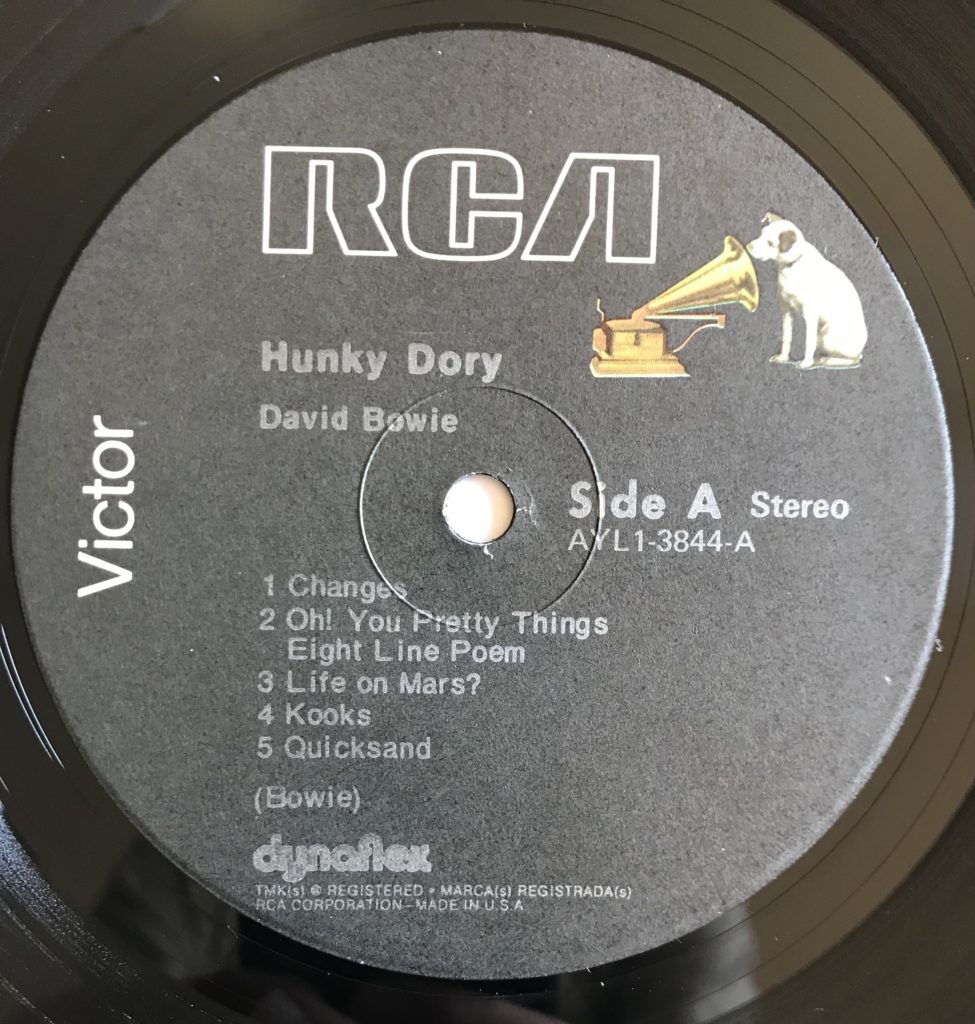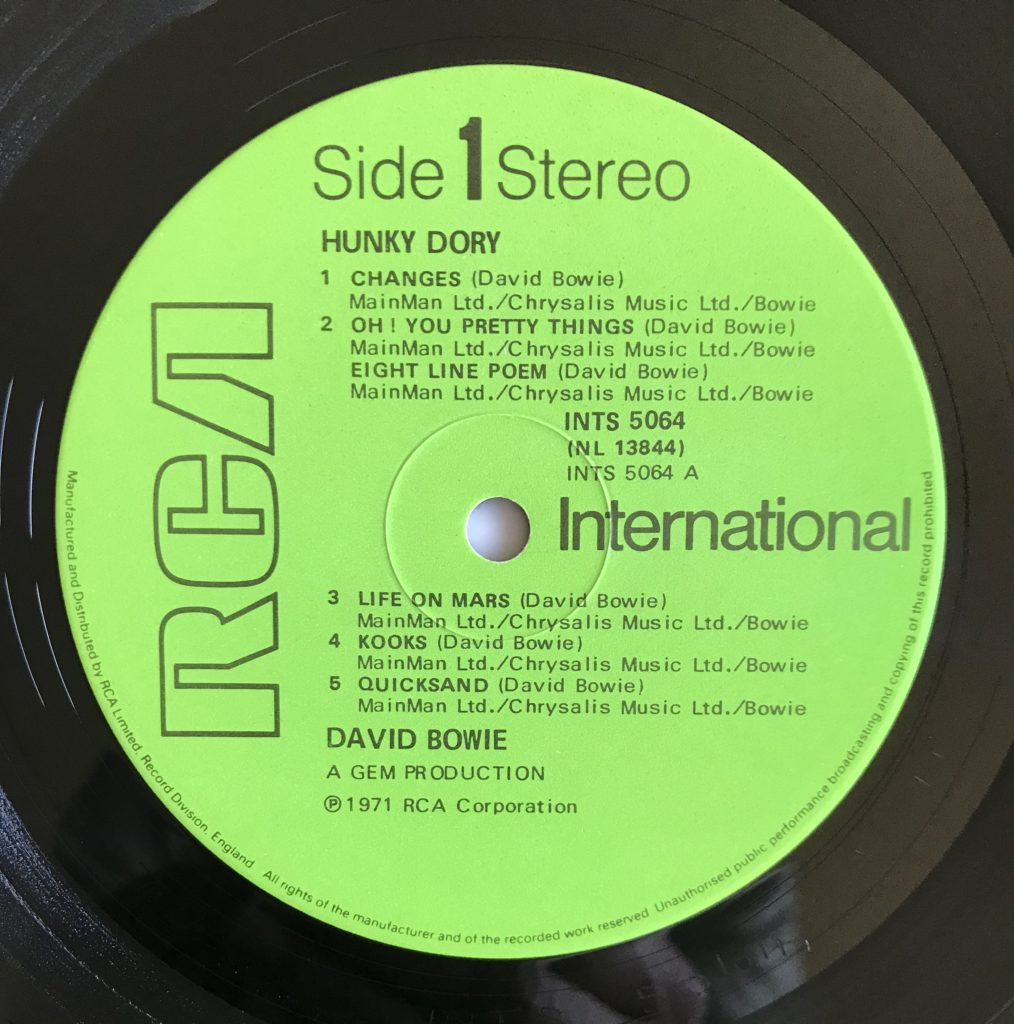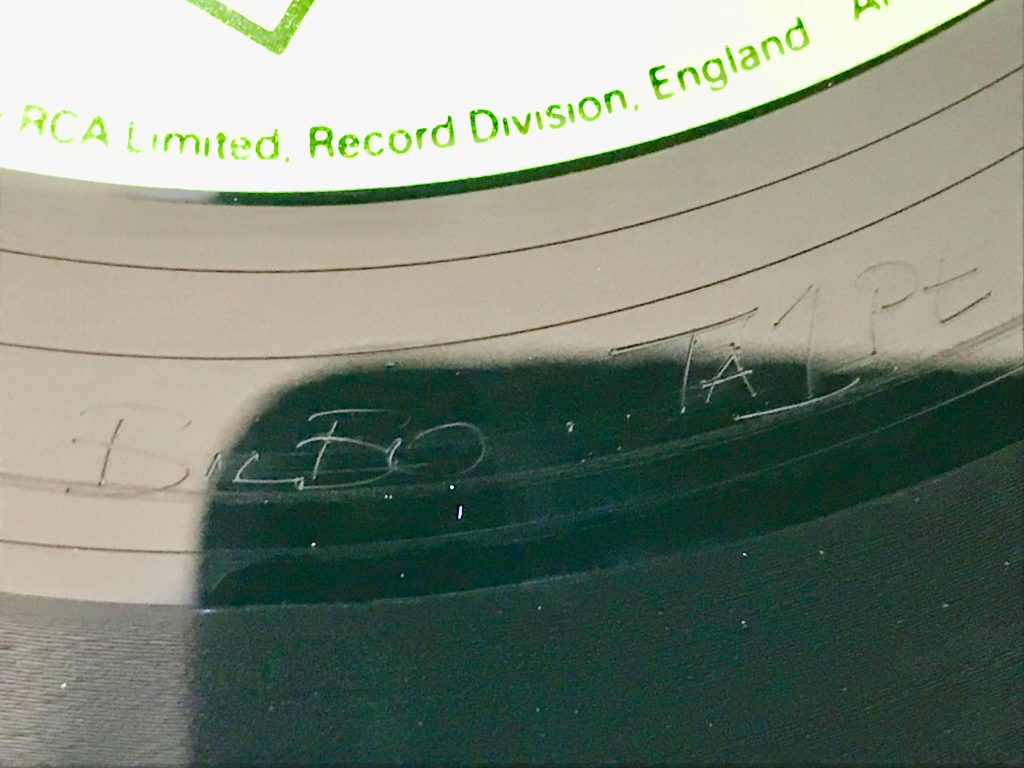It’s hard to find a good sounding record, especially when you have no idea where to start. Should I buy a US version? UK? German? Is a first pressing essential and worth the money? WHICH first pressing? Or if there’s a better reissue, which one of those? And in the end, will it even be a well pressed copy?
Another question I’ve only recently understood I needed to ask when buying a record – is the mastering engineer’s signature in the deadwax? For some of you reading this, you’ll be nodding your head ” yeah gotta have that credit”. But some of you might be scratching your head. “Huh?? Mastering Engineer?” (see my earlier post on what makes a record sound great for details on what a mastering engineer does).
There’s a terrific story, one you’ve no doubt heard if you’ve been collecting records for any length of time, about the very first pressing of Led Zeppelin 2. If you’ve already heard this story, feel free to skip ahead two paragraphs. If you haven’t heard this story, I think you’ll enjoy it and find it highlights well how significant an impact a mastering engineer can have on a record.
The original version of Led Zeppelin’s incredibly well recorded second album was mastered by the great Robert Ludwig. It’s fitting that Mr. Ludwig should master this album. Robert Ludwig or “Bob” as he’s often called, is to mastering engineers what Led Zeppelin is to rock bands. Bob mastered the record, copies were pressed and shipped and sold, and one of those copies, the story goes, went to the daughter of Atlantic founder Ahmet Ertegun as a gift. When she played the record the bass was too “hot” and the record wouldn’t track on her rinky dink turntable. She promptly made a stink with daddy who immediately went back to the the mastering department at Atlantic and demanded it be remastered. The second version was mastered by the also fabulous Lee Hulko who’s job it was to tame this monster recording so it would play on cheap turntables. Mr. Hulko obliged and the “hot” version of Led Zeppelin 2 was born.
This first version is also known as the “RL” cut, referring to Mr. Ludwig’s signature – a tiny “RL” in the deadwax. On the “official” “RL” cut there’s also an even tinier “ss” referring to Sterling Sound where the record was pressed, next to Bob’s signature. It appears there’s some debate about whether this version is the sole version to contain Bob’s bone crushing mastering in it’s grooves, but I can say from experience that the “RL ss” version doesn’t disappoint. Whether it’s the only version that can deliver the impressive sonics that the “RL ss” does, I can only speculate, but it’s this version that most collectors favor and it’s largely to due to the presence of Robert Ludwig’s now infamous signature and the listening experience it promises.
Mr. Ludwig has mastered a ton of titles, many of them also fabulous. He has a particularly strong knack for bringing out the best in live recordings. His mastering of David Bowie’s 1974 recording David Live is just one of his many stand outs. A great copy of David Live can come to life like few records can, and the band that Bowie assembled for the performance, including David Sanborn on alto sax, Earl Slick on guitar and Herbie Flowers on bass among others, is stellar!
David Live can also be a frustrating record from a collecting standpoint. There are a number of different pressings made with quite a few different master stamps that were used in different combinations. Often the matrix for a given release varies from the numbers listed, and while there are a few releases that are purported to have Mr. Ludwig’s signature on all 4 sides, it’s annoyingly hard to actually find one. Most copies have the “RL” on 3 sides but not the 4th.
Such is the case with my copy. And despite the fact that I’ve never heard the version of that 4th side with Mr. Ludwig’s mastering credit, I’ve decided I’m content with the copy I have. And frankly, I’m not convinced it really matters that much. All 4 sides of my copy sound wonderful and for now I’ve moved on from trying to find a 4 sided “RL” copy.
It’s important to point out here that having an “RL” in the deadwax on a record is not a guarantee that the record will sound good. I have a copy of Donald Fagen’s The Nightfly which Bob mastered for Masterdisk. It has his signature on both sides and it’s a terrible sounding record. I understand there are some very good sounding copies out there, and I’m sure Bob’s mastering fulfills as much of the potential of the master tape as he could muster, but it’s difficult music to get right on a record and there are limits to what the mastering engineer can do.
Still, a mastering credit can make a tremendous difference, as a recent experience I’ve had illustrates. A few years ago I bought a 1980 US reissue of Bowie’s Hunky Dory from a store in Oakland. Of all the Bowie albums I’ve owned, Hunky Dory has received the most play by a far. I had the RCA cd in college and it was in heavy rotation throughout my 4 years at Cal. This vinyl copy played pretty well, but when the album was reissued by Parlaphone in 2016 I bought a copy hoping it would best the ‘8o reissue. It did not. The ’80 reissue was way better.

But because this is one of my all time favorite albums, I continued to keep this record on my radar in the hopes of finding an even better copy. I had heard good things about another 80’s reissue from RCA International and when a very pricey copy of Ziggy Stardust and the Spiders From Mars I bought from Better Records turned out to be one of these green label 80’s UK reissues, I decided I might be able to find my own hot stamper copy of Hunky Dory if I focused on this version.
It turned out that there were a couple of different listings for green label RCA Int’l reissues of Hunky Dory on Discogs so I put them both on my want list and eventually bought a copy. When it arrived from the UK and I had a chance to play it, I was initially encouraged. This version had a lot more weight at the low end than my ’80 US copy. I played side 1 and liked it but didn’t love it. When I played my US copy again it was clear why. The ’80 US was a huge improvement in transparency over this UK version. I put the UK green label into the sell pile and went back to the drawing board.
I had the UK green label listed on Discogs for a few months and had quite a few inquiries about it. Every one of those inquirers asked the same question. “Does your copy have ‘Bilbo Ta1pe’ in the dead wax?” The only reason there were several inquiries and not just one and a purchase was that this copy did not have “Bilbo Ta1pe” in the dead wax. Buyers wanted a copy with that mastering credit.
“Bilbo” I soon discovered referred to Dennis Blackham, mastering engineer at I.B.C. Studios and the one responsible for a great many titles including a good chunk of Bowie’s catalog. Upon further investigation I discovered that the copy of Ziggy I bought from Better Records also had Mr. Blackham’s credit in the deadwax. Now I had narrowed my search significantly and it was, in a way, easier to keep looking. The only problem was that other sellers were also getting the question “Does your copy have ‘Bilbo Ta1pe’ in the dead wax?” and were no doubt sick of it. I needed to don a thicker skin and start sending inquiries as well if I was going to find a copy with so much competition.
Luckily a savvy seller listed one with the matrix and it included the “Bilbo” mastering credit. I quickly ordered it and after a rather lengthy wait, finally received it. I put it on the turntable and sat down, casually, to listen. I was prepared for another disappointment. At least I knew this copy had the mastering credit buyers were searching for and that I wound’t have too hard time reselling it. Plus I still had my US reissue which sounded pretty good, albeit a little bass shy.

From the first word out of Bowie’s mouth I knew this record was different than any copy I’d heard before. Honestly I had to contain my enthusiasm because I was having a hard time believing Hunky Dory could sound this good and I didn’t want to crown the victor until I had a chance to see what flaws would no doubt be revealed with further listening. I kept waiting to find those flaws and I am still waiting. Gradually, I began to let certainty claw for foothold in my expectations. This copy, it appeared, was the one.

The very first thing I noticed was Bowie’s voice. Wow! It was so clear and present it was hard after so many years of hearing it veiled and receding to believe this was mastered from the same recording. The backing vocals were also so much more present I began to wonder if I had even known there were backing vocals on the record before! Then I noticed the piano, which plays such a huge role on this record that if it sounds at all false on any copy you could argue the whole record is a failure. The piano on this copy had weight, spot on tonality and again, terrific presence.
I won’t bore you with a complete break down of every musical element on the record and the ways this copy makes each one shine. Suffice it to say it all sounds fantastic, and it’s all backed up with a big solid bottom end that is weighty and satisfying. It’s not until you hear Hunky Dory with a great low end that you realize how important it is to the listening experience. Hunky Dory has a lot of elements in the upper midrange and if these elements are not backed up with solid bass they are left to dominate the listening experience and make that experience, frankly, irritating. It’s a testament to the quality of Bowie’s art that I listened for years, happily I might add, to the RCA cd which has got to be the thinnest and most irritating sounding version out there.
Needless to say I’m thrilled that I persevered with Hunky Dory. To find a great sounding copy of any title after 4 tries, let alone a fantastic one, is no small feat. It’s always fun to land a sonic gem on the very first try, and while it certainly incurs significantly more time, expense and frustration, having the opportunity to put my collecting sleuth skills and knowledge to work and come out with something to show for it is a genuine triumph. It’s also a valuable lesson going forward. The mastering credit can make the difference between a decent record and a truly great one.
